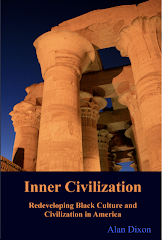
Howard University: Staying Competitive or Becoming Uniform?
December 15, 2010 08:30 AM
by R. Asmerom
Howard University is in a critical phase right now. While many continue to question the need of HBCUs in this day and age, the University is going through an academic renewal, by which it is seeking to cut down on departments in order to strengthen other academic offerings. According to the Washington Post, the university is considering cutting its undergraduate programs in philosophy, anthropology, the classics and even African studies.

Although Howard’s intentions are in line with making the school more efficient financially and more focused academically, cuts to certain programs like undergraduate African studies raises questions as to how these changes will impact the identity and legacy of a college which defines itself as being in service to Black studies and Black students.
“Howard University has to demonstrate more than a symbolic commitment,” said Dr. Anthony Samad, professor of political science and African American studies at East Los Angeles College. “Getting rid of African studies is troubling from the perspective that colleges with large African American populations cannot be ignorant about Africa and claim they advance a total and complete global perspective. That’s a perpetuation of what has occurred in America’s study of Africa and the stereotypes that have
 come out of an uneducated perspective. It’s like Harvard or Yale discontinuing the study of Europe. It just wouldn’t happen.”
come out of an uneducated perspective. It’s like Harvard or Yale discontinuing the study of Europe. It just wouldn’t happen.”At the same time Samad says that he appreciates the efforts of the school to do whatever it takes to heighten its productivity. “Howard is not a Black University. “It must keep current on global curricula that make its graduates competitive in the global space.”

Howard, which is one of the top schools amongst the 105 HBCUs, is competing against not just other Black schools but the top schools in the country to recruit the top Black students. Although Howard is “the leading producer of on-campus African American doctorates and the nation’s only historically black institution identified as a first-tier “Re
 search I” university,” competition is stiff and administration believes that cutting down on its 171 programs will free up more resources to focus on its professional programs like that in medicine, law, dentistry and nursing as well as social work, psychology, business and pharmacology.
search I” university,” competition is stiff and administration believes that cutting down on its 171 programs will free up more resources to focus on its professional programs like that in medicine, law, dentistry and nursing as well as social work, psychology, business and pharmacology.“You can’t do everything at once,” said Howard’s President Sidney Ribeau to the Washington Post. One of the 20 undergraduate programs on the chopping block is philosophy. Howard’s philosophy department is significant in that it represents the only philosophy department at a historically black college and a major source of Africana philosophy. A Save Howard Philosophy petition has attracted more than a thousand signatures according to the Post.
Students, past and present, have expectantly mixed reaction to the school’s evolution. “Change is not necessarily a bad thing,” said Queshia Bradley, a 2006 graduate of Howard. “As I understand it, the undergraduate programs that are being cut have a very low student enrollment. So why not reign in resources by cutting down the 171 programs Howard offers?” It will be interesting to see how matriculation will be affected by the changes, especially amongst those who value a liberal arts focus. “The other side of the coin is that [Howard may be] robbing these students of an experience just because their focus isn’t valued,” said Bradley. “Which raises the bigger question not just on how Howard is devaluing these programs, but how educational institutions generally support more tangible programs [like engineering and business].

Spelman alumnus and cofounder of the HBCU site AUCAlumni.com, Tiffani Murray, believes that Howards’ remodeling is strictly a business decision and one that will help the institution remain strong and relevant for many years to come. “I think that the school could continue to operate and fund departments and professors that have a low enrollment, but at what cost?,” she asked. “We can look at some of the HBCUs that have closed their doors in the past decade and think that if some choices had been made differently or strategies employed they could still have students attending them. I think if it is a choice of making changes that will keep HBCUs in operation and competitive with mainstream schools that are attracting the same top students or keeping programs and the risk of the schools going into debt, the choice is clear.”


5 comments:
A whole unexploited continent! It could have been developed by Europeans without all that legendary killing and double dealing, both in North and South America.
dissertation writing uk
gucci belts
longchamp outlet
nike dunk low
air max 90
ferragamo belt
led shoes
longchamp
nike air max 2017
cartier love bracelet
asics sneakers
cheap ray bans
ray ban sunglasses outlet
uggs outlet
nike factory outlet
true religion outlet store
bengals jersey
cheap basketball shoes
nike shoes
polo ralph lauren
christian louboutin outlet
zzzzz2018.6.11
kate spade outlet
super dry
canada goose jackets
manolo blahnik
canada goose outlet
pandora jewelry
true religion jeans
prada outlet
maillot football pas cher
true religion outlet
This info is worth everyone's attention. Where can I find out more?
Feel free to visit my homepage : jasa seo
Post a Comment